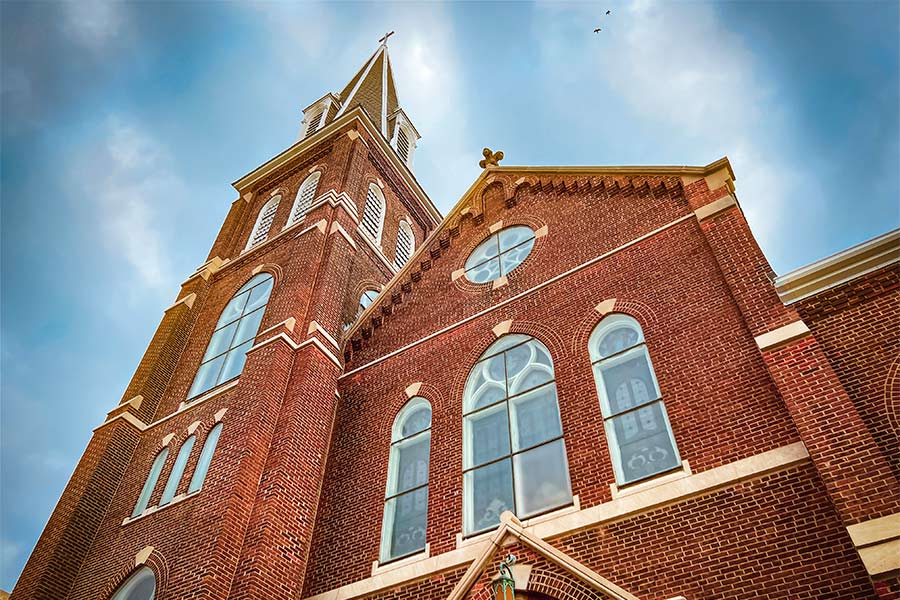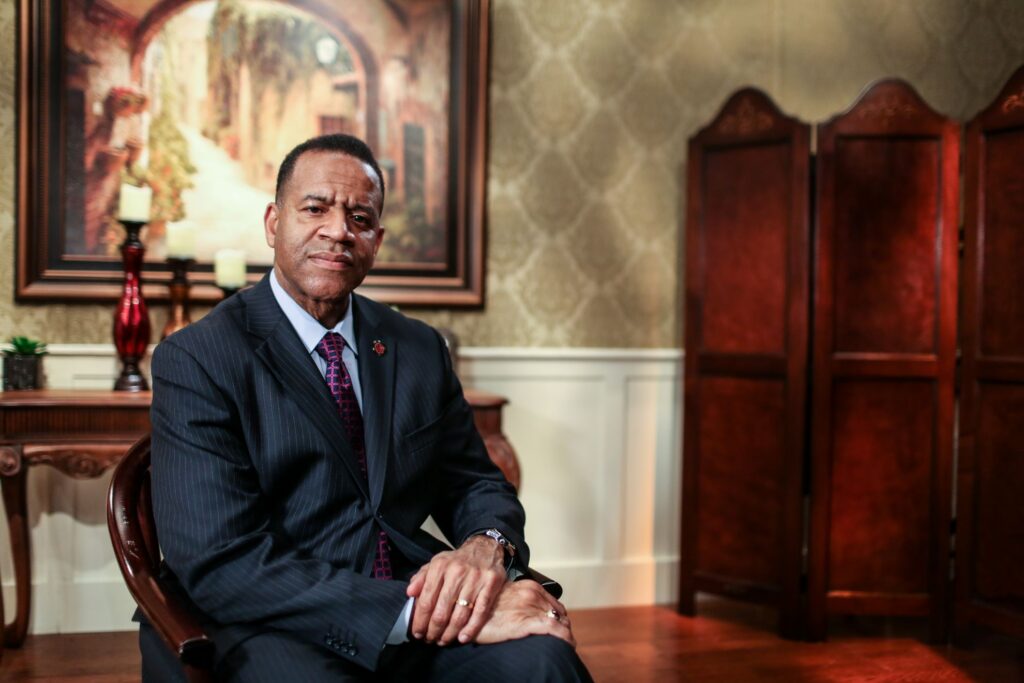
In the lead-up to the 2020 presidential election, CNN hosted a town hall on LGBT issues. Among the panelists was Beto O’Rourke, a former congressman from El Paso who hoped his radically “progressive” positions could elevate him to the White House.
CNN anchor Don Lemon posed a heavy question to O’Rourke—one loaded with constitutional ramifications.
“Do you think religious institutions—like colleges, churches, charities—should lose their tax-exempt status if they oppose same-sex marriage?” Lemon asked.
O’Rourke gave an unequivocal answer.
“Yes,” he said. “There can be no reward, no benefit, no tax break, for anyone or any institution, any organization in America, that denies the full human rights and the full civil rights of every single one of us.”
Of course, O’Rourke did not become president, so he never had the chance to strip churches of their tax exemptions. But how did we reach a point where a mainstream presidential candidate would call for such a radical act?
While most Americans may know that churches are tax-exempt, many can’t explain why that is. Even many Christians would likely have difficulty explaining why they believe their church should remain tax-exempt. If we want to protect religious freedom, we must understand how it came about and why it is essential to our society, and church tax exemptions are a crucial part of that story.
How were tax exemptions for churches established?
The Founding Fathers understood that to have a free society, all its members must be able to practice their religion without government interference. This is why the First Amendment to the Constitution begins with, “Congress shall make no law respecting an establishment of religion, or prohibiting the free exercise thereof.”
While the First Amendment does not explicitly mention taxes for churches, it is well understood that taxation often serves as a way for a ruler to control his subjects. Thankfully, we do not have “rulers” or “subjects” in our form of government, but as the U.S. Supreme Court said in the 1819 case McCulloch v. Maryland, “the power to tax involves the power to destroy.”
If the First Amendment protects the freedom of religion (and it does), then it must also guard against the government having the power to control—or destroy—religious institutions. It is no surprise, then, that churches have been tax-exempt since the first time the tax code was passed at the federal level, and they have remained that way ever since. All 50 states also include property tax exemptions for churches, further ensuring the state cannot control the church.
Should churches be taxed?
The constitutional interest of protecting churches from government control is reason enough why churches should not be taxed. But there are practical reasons too.
Churches provide tangible benefits to their surrounding communities. Many churches serve their communities in various ways such as providing food, shelter, and clothing to people who need it; sponsoring adoption and foster care programs; and so much more.
In 2010, researchers from the University of Pennsylvania and Partners for Sacred Places conducted a study analyzing the economic value of churches to their surrounding communities. The study focused on 12 Philadelphia congregations and found that they provided an economic contribution of about $52 million annually. The researchers concluded that churches can “now be viewed as critical economic catalysts.”
A similar study by Dr. Michael Wood Daly of the University of Toronto found that ten congregations in Toronto with a collective budget of $10 million annually provided “a cumulative estimated economic impact of approximately $45 million.” While the exact benefit each church provides to its community will vary and cannot always be easily quantified, these studies strongly suggest that churches’ economic contributions far exceed the money they would pay in taxes.
Furthermore, as Christians, we know that the Gospel is “the power of God for salvation to everyone who believes” (Romans 1:16). And as the Gospel spreads, lives are transformed as people turn from their sin and seek to live godly lives. God’s grace trains us to “renounce ungodliness and worldly passions, and to live self-controlled, upright, and godly lives” (Titus 2:12). Transformed lives lead to transformed communities. Former criminals stop committing crimes. People who were once depressed and contemplating suicide find their identity in Jesus Christ. Those who might be indifferent to the needs of others serve their communities selflessly.
Court cases about church tax exemptions
Perhaps the most well-known case about tax exemptions for churches is the 1970 Supreme Court case Walz v. Tax Commission of the City of New York. Frederick Walz, a property owner in the city, filed a lawsuit seeking to stop the New York City Tax Commission from granting tax exemptions for property only used for religious purposes. Walz claimed these exemptions unfairly benefited religious organizations and violated the First Amendment’s ban on government-sponsored religion.
In a 7-1 decision, the Supreme Court upheld church tax exemptions. The Court rejected the claim that exempting churches from taxes amounts to government-sponsored religion, and it ruled that the government can operate with “a benevolent neutrality.” This allows religious organizations to exist without sponsorship or interference from the government.
Unfortunately, another significant case, Branch Ministries v. Rossotti, set a dangerous precedent for government censorship. Branch Ministries operated a Christian church in Binghamton, New York, called the Church at Pierce Creek. Before the 1992 presidential election, the church sponsored advertisements in USA Today and The Washington Times discouraging Americans from supporting a presidential candidate who advocated for positions that were contrary to the church’s religious beliefs and convictions.
The Internal Revenue Service (IRS) launched an investigation into the church and ultimately revoked its tax exemption because it had participated in political activity. Branch Ministries filed a lawsuit against the IRS, but the U.S. Court of Appeals for the District of Columbia upheld the agency’s decision.
In its opinion, the court relied heavily on the 1954 Johnson Amendment to the Internal Revenue Code, which states that no 501(c)(3) nonprofit organization can participate in “any political campaign on behalf of (or in opposition to) any candidate for public office.” This amendment tramples on the rights of churches to share their beliefs, and it threatens pastors with government punishment for speaking biblical truths.
Since the Branch Ministries decision, the IRS has continued to use the Johnson Amendment to threaten churches. According to data collected by The Texas Tribune and ProPublica via a Freedom of Information Act request, the IRS launched investigations into 16 churches between 2011 and 2021. The agency declined to disclose the results of those investigations.
Conclusion
If the government could tax churches for espousing God’s design for marriage, as Beto O’Rourke suggested, what else could it do? How else could the state control the church? Would the next step be to prohibit churches from endorsing unfavored ideas? In light of comments like O’Rourke’s, these questions need to be asked.
And the fact that we’re asking them means that we need to remember the implications of religious freedom guaranteed by the First Amendment: churches must remain tax-exempt, and they shouldn’t be forced to censor themselves as a condition of those exemptions. For religious freedom – and American society – to thrive, the government must not be given the power to control the church.






